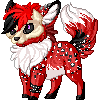News
Search Options ►Library Knowledge Base Updated
Site Update

The Library's knowledge base article has been updated.
Common issues seen so far: no left justification, misuse of quotation marks, submission not Aywas-related.
Posted by JAK
(#15) on Wed Aug 20, 2014 2:40pm
- zombiepuppy
(#6562)

-
Posted on: Wed Aug 20, 2014 9:39pm
When it says 'Aywas related' I had a question in regards to this - I have an OC concept that is linked to the 'NPC creation from a site pet' task in Scav. Would it be acceptable to have their backstory/stories involving them as an 'unoffical' Aywas-related character as submissions? Assuming that his backstory relates to Ayways of course - and in that case can we use other NPCs in our work?
For instance, part of his 'backstory' involves and altercation with the site's Famine - is this allowed as part of the submitted stories?
- singingbadgerLLovesU
(#30385)

-
Posted on: Wed Aug 20, 2014 10:28pm
I respect your (JAK's) point of view, but as an (off and on) published SF/ F fiction author for many, many years, I must say that - other than from a strict journalistic (which I also have been, years ago), rather than fiction, point of view - restricting basic "speaking" cues is extremely limiting...if nothing else, it would require far more descriptive text to convey a given mood than a single well-chosen evocative verb. (and yes, I DID read the KB tagged items - and other than the purple prose, a clearly defined genre, I find both speaking verbs and adverbs debatable on a situational basis...)
I agree fully that these items can be - and often are - used to excess (if you are a student of writing, I'm sure you have heard of "Tom Swifties", which, unless used deliberately for comedy effect, cause ALL writers to cringe), but properly handled, speaking verbs can contribute a great deal to a fiction narrative with a miniumum of verbiage, which I would expect to be desirable in a medium where we are NOT paid by word count, lol.
Adverbs...well, as a poet as well as a prose writer, I believe in varying structure to create interest, and well-chosen adverbs can contribute to this.
As in most cases, I understand that you will be dealing with novice writers still getting their literary feet under them, you need some kind of ground rules, and the ones you stipulate make sense on general terms...but I do hope they are not going to lead to cookbook critiqueing without respect to content and overall effect. (thanks for listening, lol)
- 🌸 SG 🌺
(#36207)

-
Posted on: Thu Aug 21, 2014 12:46am
Can I at least get a direct response as to why exclaimed is disallowed when one of the three most basic forms of punctuation is called a "exclamation point", and why asked is allowed when exclaimed isn't?
What exactly are current publishing standards when characters are, in fact, shouting, screaming, yelling, declaring, proclaiming, or exclaiming? It doesn't feel like "said" would be adequate for any of those manners of speaking, but is it?
How common is this professional standard? Do most or all publishing firms agree on this matter, or is there variation between companies? If it is the norm, when did it become so? I know every best-selling novel I can remember has used at least a few more diverse verbs sprinkled about, from Harry Potter to Winnie the Pooh. Certainly characters in those don't tend to "chortle", but they do exclaim, squeak, murmur, and the like. Would you call the use of such verbs flaws in those works?
- Tyger
(#54028)

-
Posted on: Thu Aug 21, 2014 3:18am
Are the books going to turn up in random item games (cooking etc.), and will the authors get a cut from them if so?
- JAK
(#15)

-
Posted on: Thu Aug 21, 2014 3:49am
It's not disallowed to EVER use another word but said or asked. The rule says *unnecessary* speaking verbs, because most of them *are* unnecessary. This is because the dialog should be able to convey the information of a speaking verb on its own, otherwise it is weak dialog. They have their place *sometimes* (notably when they contradict the dialog, such as saying [ "I love this," she grumbled]) but most of the time they're in there telling instead of showing, and indicative of poor writing. Adverbs are also indicative of the same problem.
Singingbadger is indeed right that *well chosen* words are good. There is a time and place for everything. However, that doesn't mean that these still aren't rules you should stick to unless there's a very good reason not to. You say yourself you know novels that have a FEW diverse verbs. The few part is the important part, especially when we're talking whole novels. Remember, the rule says *unnecessary*. Odd dialog tags are a crutch and they shouldn't be used unless they'll make a lot of impact and have a genuine purpose. Same with adverbs.
A simple google search will uncover a lot of editors, published authors, and agents speaking on these issues. Here is a good one. Two Three Four Five Six Seven Eight Nine Ten Eleven Twelve Thirteen ... we could go on. But you could research it yourself -- when I was researching agents and editors for my publication journey, I came across this advice over and over. It is valid. It is the opinion of the professional world.
- Ethy (busy)
(#52406)

-
Posted on: Thu Aug 21, 2014 8:15am
omg thank you for also giving contributor status C:
- 🌸 SG 🌺
(#36207)

-
Posted on: Thu Aug 21, 2014 12:52pm
I apologize if this seems to have gotten a bit out of hand, but the "few" is all I was hoping for. The article currently linked in the KB, which we had to assume you agreed with fully as nothing said otherwise, specifically states, "Said and asked. That�s it. Always and forever." (Bold preserved from quote.)
I said in two of my comments I definitely understood how it was problematic; I just found that "always and forever" too extreme. Perhaps either the article linked in the database could be switched to one that is a little less polarizingly written, or a small snippet of clarification could be added to denote to readers of the KB that it is only meant that other words be used sparingly/responsibly?
I also apologize if you thought that was obvious all along, but some of us, like myself and my lairie both, are prone to taking things extremely literally if not given indication not to do so, heh. '^__^;; So additional clarification rarely hurts, right?
- singingbadgerLLovesU
(#30385)

-
Posted on: Thu Aug 21, 2014 2:06pm
Good fiction engrosses the reader and provides that classic "suspension of disbelief" that allows them to become involved in your narrative. Both word choice and word sequence/structure are key tools in this process - these are what flesh out the bones of your concept/plotline. Over time, most writers develop a distinctive style or voice, which may or may not follow the "party line"...but this is something that comes with experience - and success. Beginning writers could do worse than err on the side of caution.
Posted on: Wed Aug 20, 2014 8:40pm
I already *have* graduated college for creative writing, taught by a Pulitzer Prize winner, have read intently what professionals in the publishing field (agents and editors alike) expect from authors, am traditionally published with a New York firm publishing agent, and I can tell you confidently you are wrong about your disagreements with either of those rules.